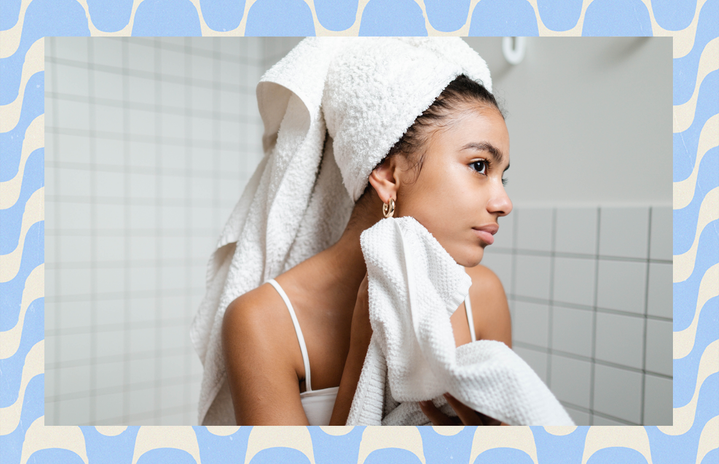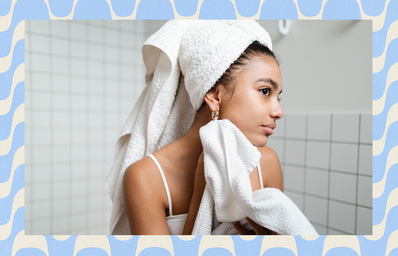Let’s be honest–when it comes to self-care, marketing companies know how to make money. In 2023, the “self-care” market in the United States is predicted to make almost 100 billion dollars, and it shows no signs of slowing. From exfoliating scrubs to satin sheets, to high-end spa days or cheaper Target beauty hacks, the possibilities are truly endless for women looking to put some pep in their routines. But really, is the self-care industry doing any good?
For some, self-care is just another marketing scheme meant to make women spend money on their insecurities.
Psychotherapist and author Nancy Colier argues that “self-care has become…a way of suggesting that any exhaustion you feel is probably your fault because you’re not taking care of yourself in the way you should”.
Clinical Professor of Consumer Science at the University of Wisconsin–Madison Christine Whelan agrees: “[The idea that] you need to improve the ways in which you care for yourself can play into people’s really deep insecurities”.
“The real problem with our self-care system…is the basic premise upon which it’s built. Namely, that self-care is something we buy or do–as opposed to something we are–as with self-caring”, Colier continues.
Self-care no longer fits its original definition, created by Audre Lorde. Lorde provided an intersectional and highly political idea of self-care in the late 20th century. She argued that prioritizing her own physical and mental health as a Black and Queer woman was a form of activism in itself.
“Caring for myself is not self-indulgence, it is self-preservation, and that is an act of political warfare”.
Audre Lorde
And…yeah, when I initially started writing this article, I didn’t associate self-care with its original definition either. The idea has become commercialized and in some forms a weapon against women, as argued by Colier and Whelan.
I also think totally throwing out today’s version of self-care isn’t giving the modern woman enough credit.
To investigate how corrupted the idea of self-care has become, I interviewed around 30 girls ages 16 to 30 on what they thought self-care was to the public, and to them. What I learned was that although commercial aspects of self-care have definitely changed perceptions of the term, the main message isn’t as unhealthy as some may think.
When I asked these women how they thought the general public defined self-care, 52% of them mentioned skin care; with “face masks” alone being mentioned 30% of the time. Pampering and grooming followed, mentioned in 13% of responses. All of these self-care methods involve buying something–and as much as I myself enjoy a face mask from time to time, these results show how much the self-care commercial industry has permeated the idea itself.
The results were surprisingly different when I asked what each individual woman’s preferred method of self-care was. Over a quarter of the women mentioned taking breaks or time for themselves. 21% of women favored hygiene, such as showers or baths, or even something as simple as trimming their nails. And, yes, 20% of women mentioned skincare, but activities such as exercise, journaling, sleep, and crafts followed close behind.
Not to mention, when asked if purchasing items in the name of “self-care” made them more or less comfortable spending money, 65% of women responded that they feel about the same as when purchasing other items. So, even though the main point of the self-care market is to convince women it’s okay to spend money on items that make them feel good, this scheme hasn’t exactly worked. I also got mixed results when I asked if publicity (such as a viral TikTok about a product) impacts the likelihood of purchasing a specific self-care product: there was no clear trend of women being swayed to spend money as a result of marketing
While these polling results are by no means scientific and are simply the thoughts of a small number of women, they raise a point often ignored when discussing marketing tactics: women are and have always been smart enough to understand the meaning of self-care, even if that idea has been becoming more and more commercialized.
Even the women who mentioned self-care methods that included spending money the most said that at least some of their self-care was completely free.
Do I think we can work on returning to Audre Lorde’s original definition, as well as popularizing it? Absolutely. However, the current criticisms of the self-care industry seem to think that women are completely missing the point of self-care, and have become pawns in a larger game of face masks, lotion, and essential oils. I think we deserve more credit–even when pressured by outside influences (and influencers, let’s be real), women are still focusing on what matters most–themselves.


